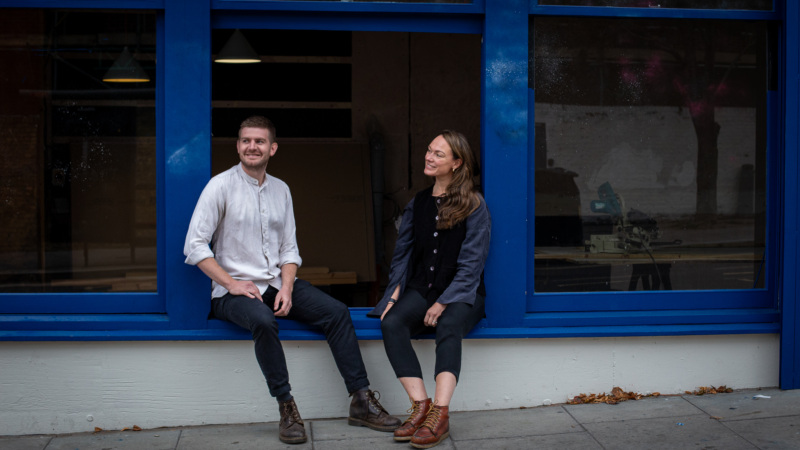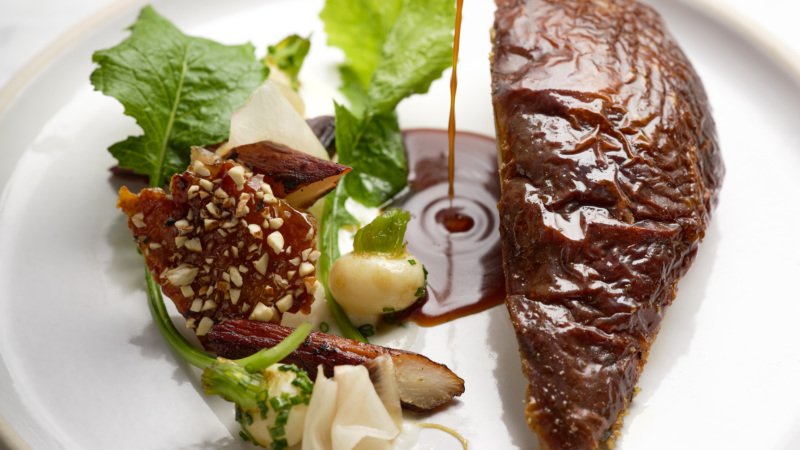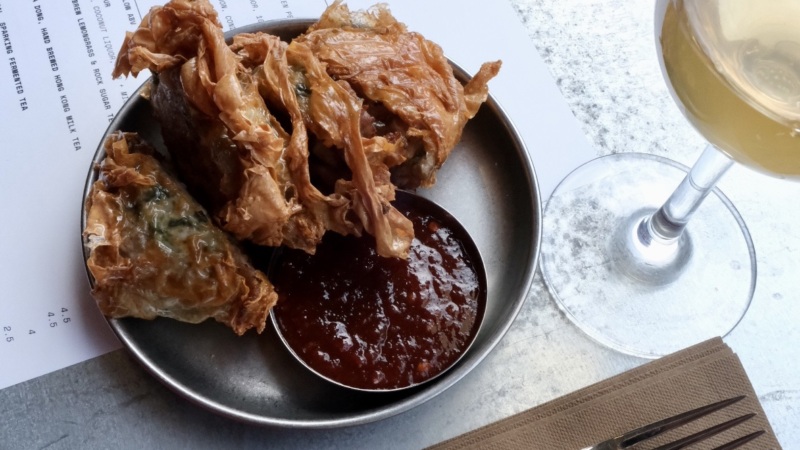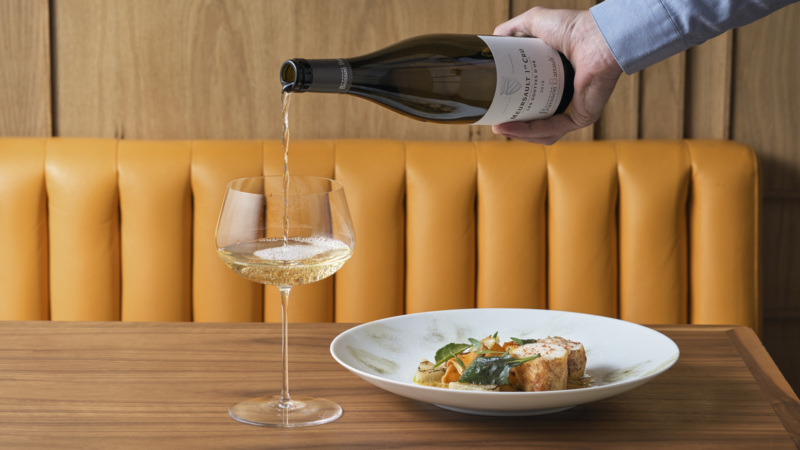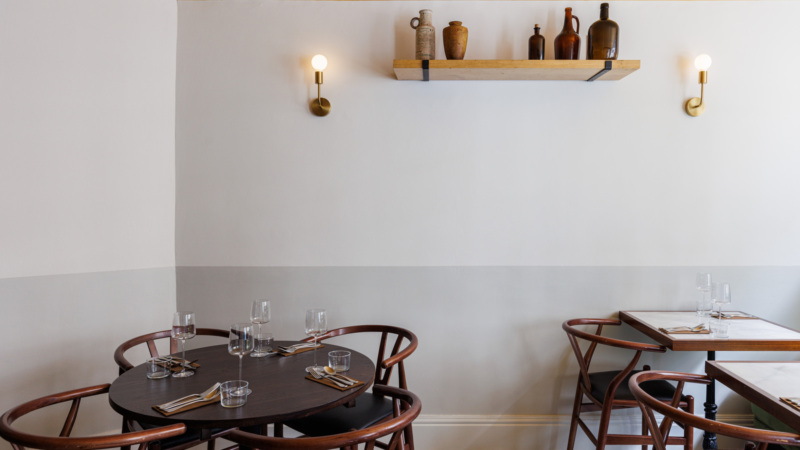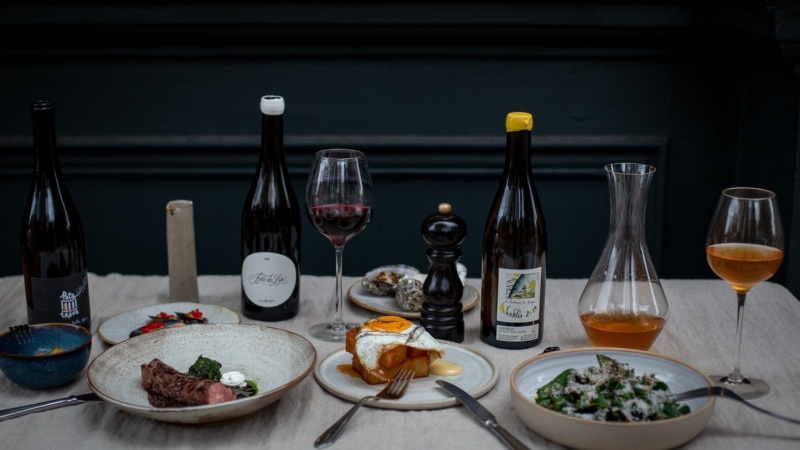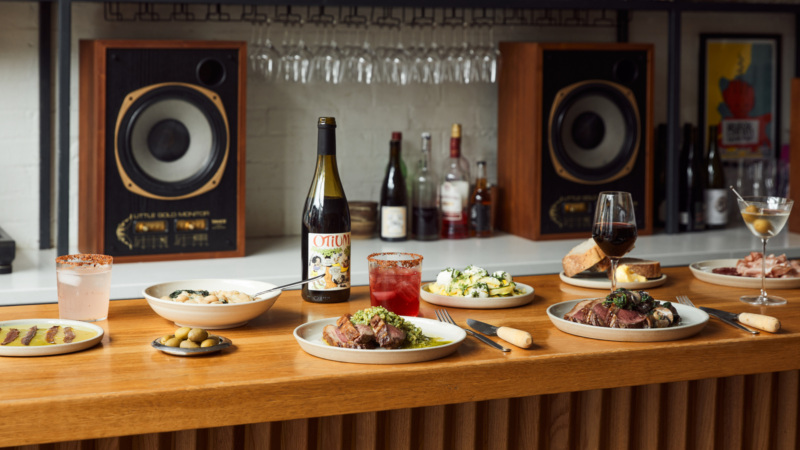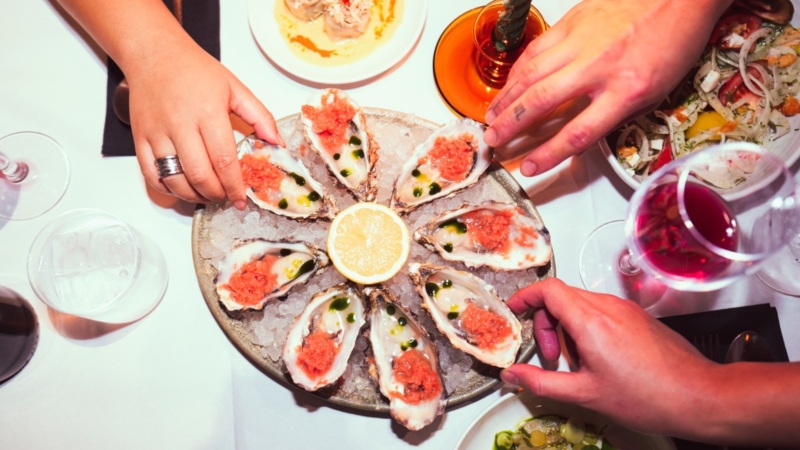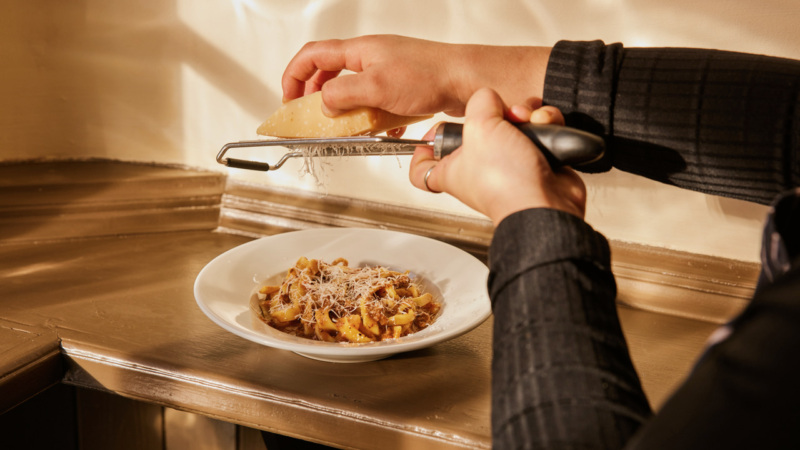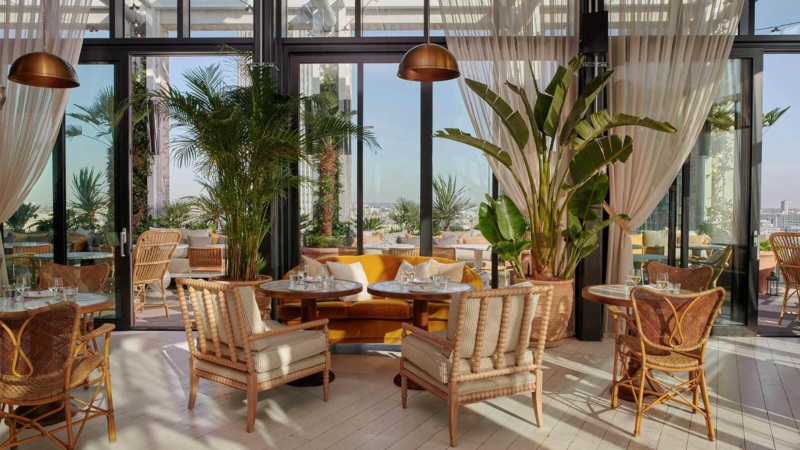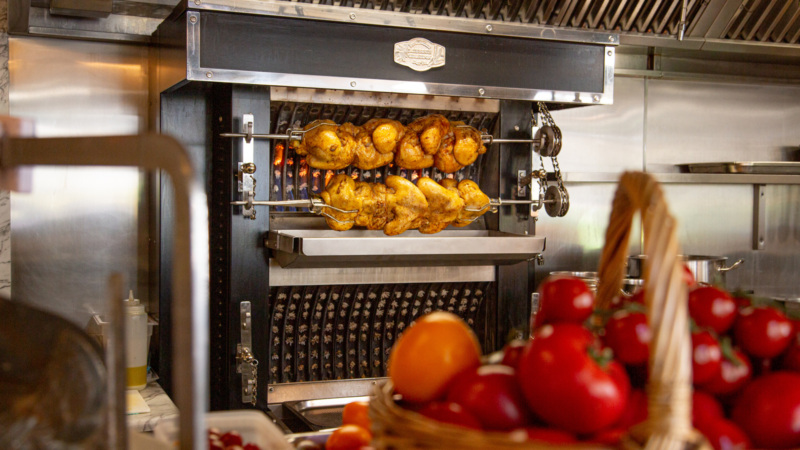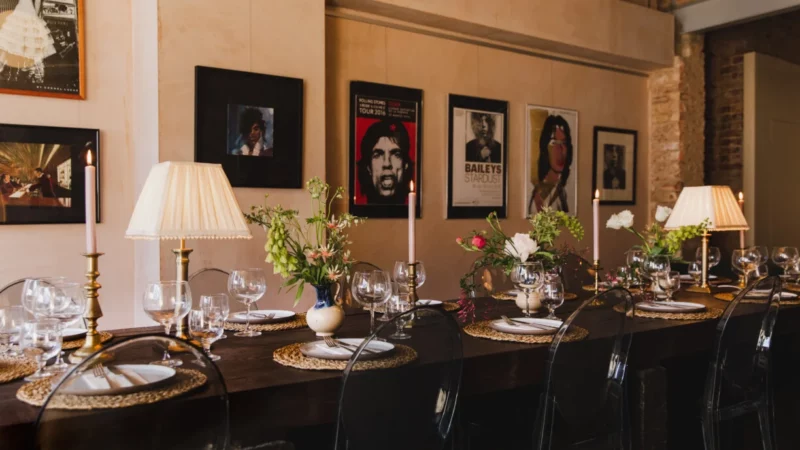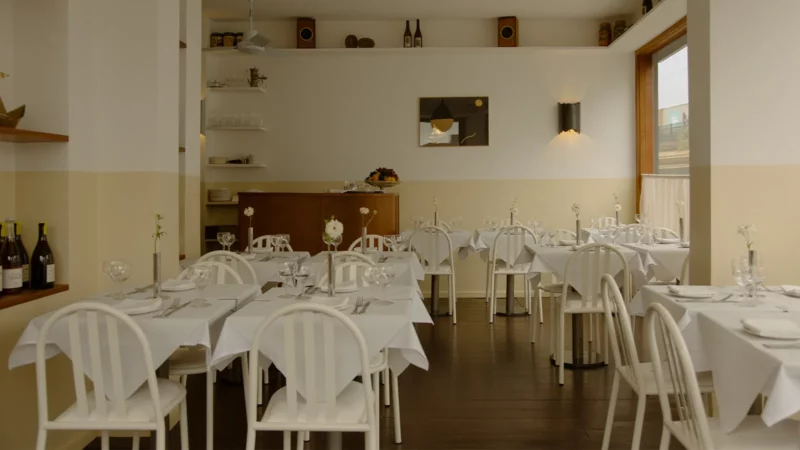
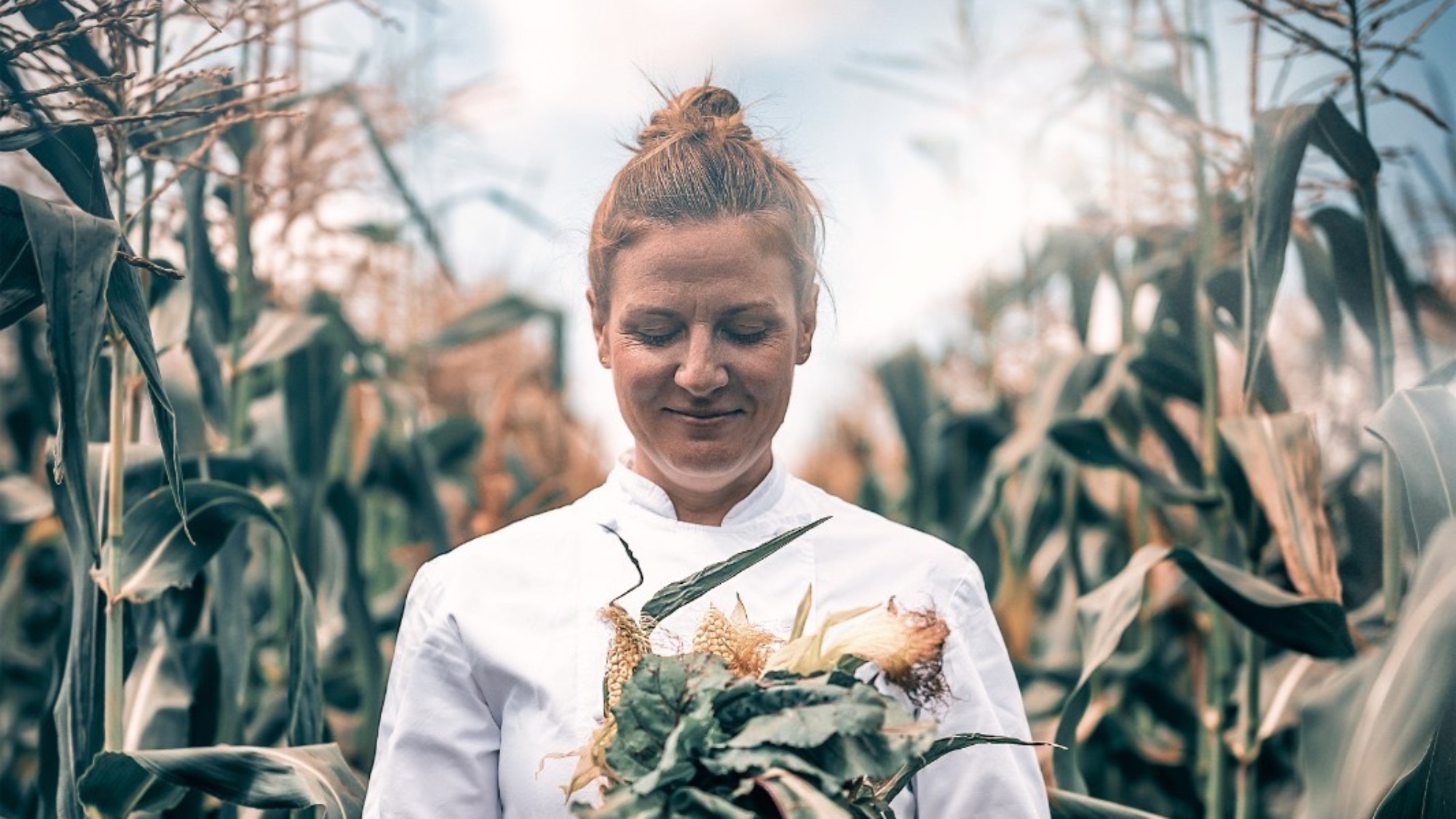
At Apricity, Chantelle Nicholson Centres Conscious Dining — And Spreads Joy
“It’s now or never,” says chef and restaurateur Chantelle Nicholson of her quietly radical new ‘circular restaurant’ Apricity. By which, she means: It’s now or never to do away with service charge; it’s now or never to normalise a five-day week; it’s now or never to bring zero waste cocktails to Mayfair; it’s now or never to open a restaurant that truly reflects who she is. And Apricity (meaning the ‘warmth of the sun in winter’) is the just the name for it. Joyful, unexpected, life-affirming.
The New Zealander has taken a circuitous path to reach this point. Nicholson grew up surrounded by good food – her horticulture teacher father grew all their fruit and vegetables; her public health nurse mother took a hard line on junk – but didn’t imagine a career in it until after her law degree at the University of Otago. When the call of food proved simply too strong to ignore, she quit her finance job and went to work in her favourite local café. Her big break came when she was talent-spotted in a Gordon Ramsay Scholarship competition and offered a job on the spot.
She moved to London in 2004, working first at the Savoy Grill, later at Pétrus, before exiting the kitchen to work back of house, as group operations director at Marcus Wareing Restaurants, where she launched The Gilbert Scott in 2011 and Tredwell’s in Covent Garden in 2014. It was at the latter, which she took over as chef patron in 2018, that the Nicholson we know today found her groove, pushing inclusivity, sustainability and plant-based long before the rest of the mainstream dared. In 2021, Tredwell’s won a Michelin green star.
But the pandemic did it for Tredwell’s, which eventually closed in September 2021. Nicholson’s response was to open All’s Well in east London, a ‘pandemic pop-up’ expressly established to preserve jobs, morale and positivity. Apricity jumps off from there, taking all those ideas about hyper-seasonality, zero waste, closed loops, and small-scale fishing and farming to Mayfair, a part of town synonymous with glitz, glamour and excess.
We spoke to Nicholson about her vision for Apricity, her hopes for hospitality, the opportunity that Mayfair presents, and why her vegetable-forward dishes are capable of shattering preconceptions.
***

- The More That Fallow Pursue Sustainability, The Easier It Gets
- The Resy Guide To London’s Best Vegetarian Friendly Restaurants
- For Many, The Union Between Restaurants and Charities Has Been a Lifeline. So, Where Do We Go From Here?
- Five Things To Know About Caravel, the Spiteri Brothers’ New Islington Restaurant
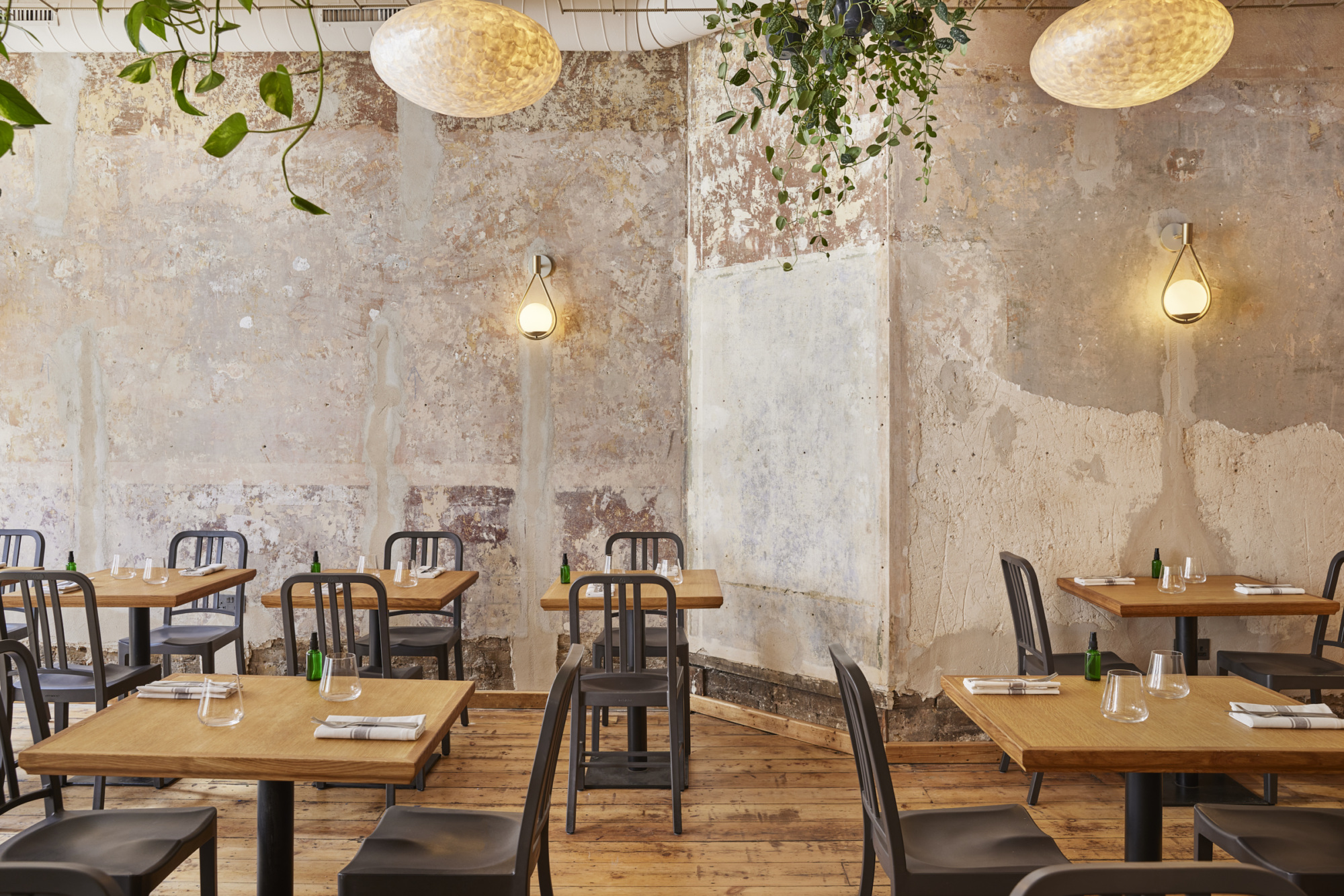
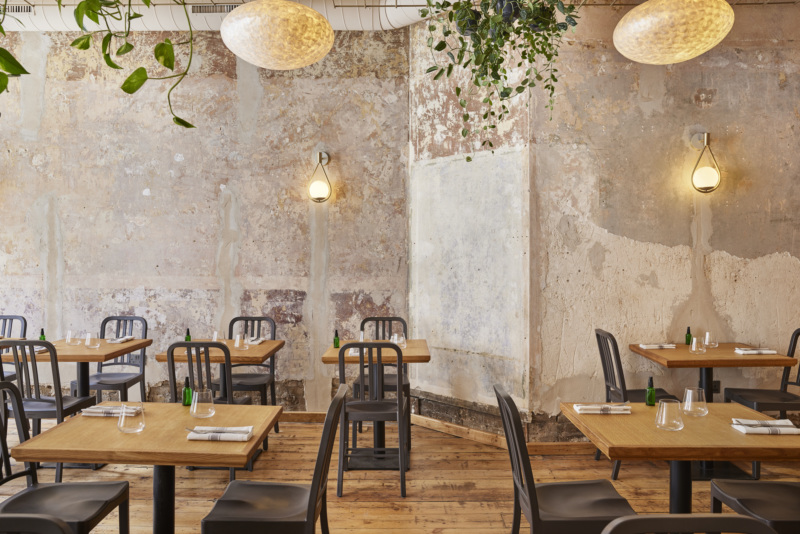
The tagline for Apricity is ‘conscious cooking, joyful dining’. What does the phrase mean to you?
“For me it was trying to sum up or find a phrase that denoted more than sustainability, a buzzword that I feel is missing a bit. I guess you might see it as more about the 360 of it, in terms of the people being the biggest part, both the team and the guests. [It’s about] having a purpose, doing everything consciously, so making conscious decisions about how we do things and why we do things, from the set up to the drinks list to service charge, pricing. And the food is obviously a a big part of that.”
“Sustainability is a tricky phrase. For me, it’s thinking about the circular economy in terms of actually reusing, repurposing, repairing – keeping things in the economy for as long as possible whether that’s a building material, a farmer that’s growing amazing produce, or attracting people and retaining them.”
Tell us about Apricity on a plate. What will we be eating there?
“A high proportion of the menu is veggie-focused. I love vegetables. You can ask any of my team how excited I get about vegetables! People don’t expect the veggie-forward dishes to be as good as they are. Preconceptions!
I feel comfortable and confident with the meat, and the seafood and dairy, we serve. We’ve soy-free pork from Devon, which is quite lovely. Cull yaw [retired ewe], ox tongue – offal isn’t particularly popular in terms of consumers, so if we can take it and make it delicious [with spring vegetables and ricotta gnudi], we’re helping everyone in that chain.”
“It’s about having a purpose, doing everything consciously, so making conscious decisions about how we do things and why we do things.”
“One of the things that I really love, it’s kind of just a salad, but we’ve got these beautiful butterhead lettuce that grow in a vertical farm in Vauxhall, which we spray all over with this vinegar, season them, and add crispy kale and cobnuts and semi-dried tomatoes, so it’s crispy, crunchy, creamy – what I love to eat really. It takes you by surprise. Another is a mushroom dish using mushrooms grown in Elstree without peat, so a very friendly product. We do those, some from the plancha, some deep-fried in a Sichuan seasoning, with some Flanders wheat from Hodmedod’s, our own XO sauce made just with vegetables, a wild garlic sauce.
What’s important is balance on the plate so texture as well as acidity as well as savouriness, and sweetness. We have a cabbage dish on, one of my favourite vegetables, with caramelised onion and linseed stuffing and black garlic ketchup. People are surprised by how good cabbage can be. We use a lot of chickpea water [aquafaba] for all our mayonnaises. Our by-product is chickpeas which is kind of the other way round from most people. We make a little doughnut using chickpea paste and we use them as a garnish in our cull yaw dish.”
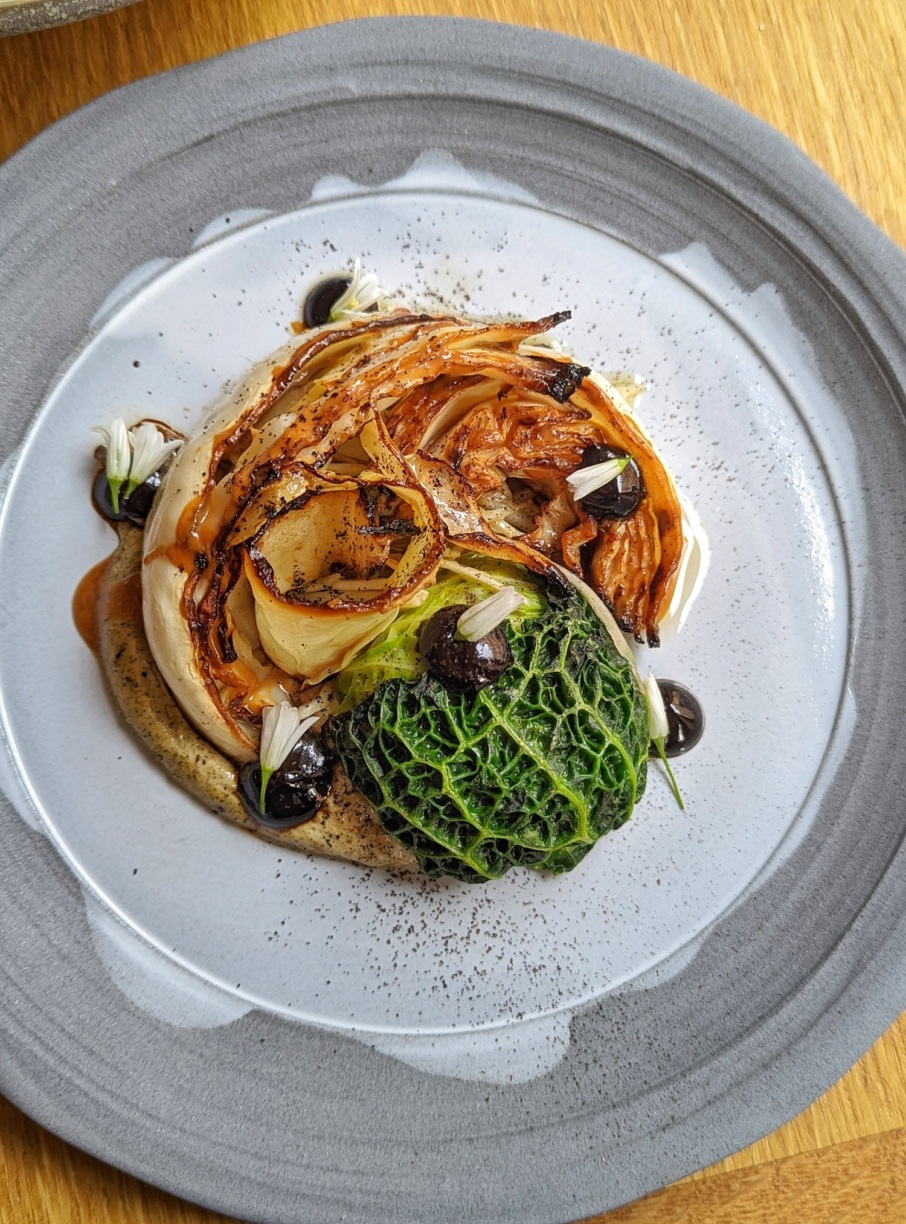
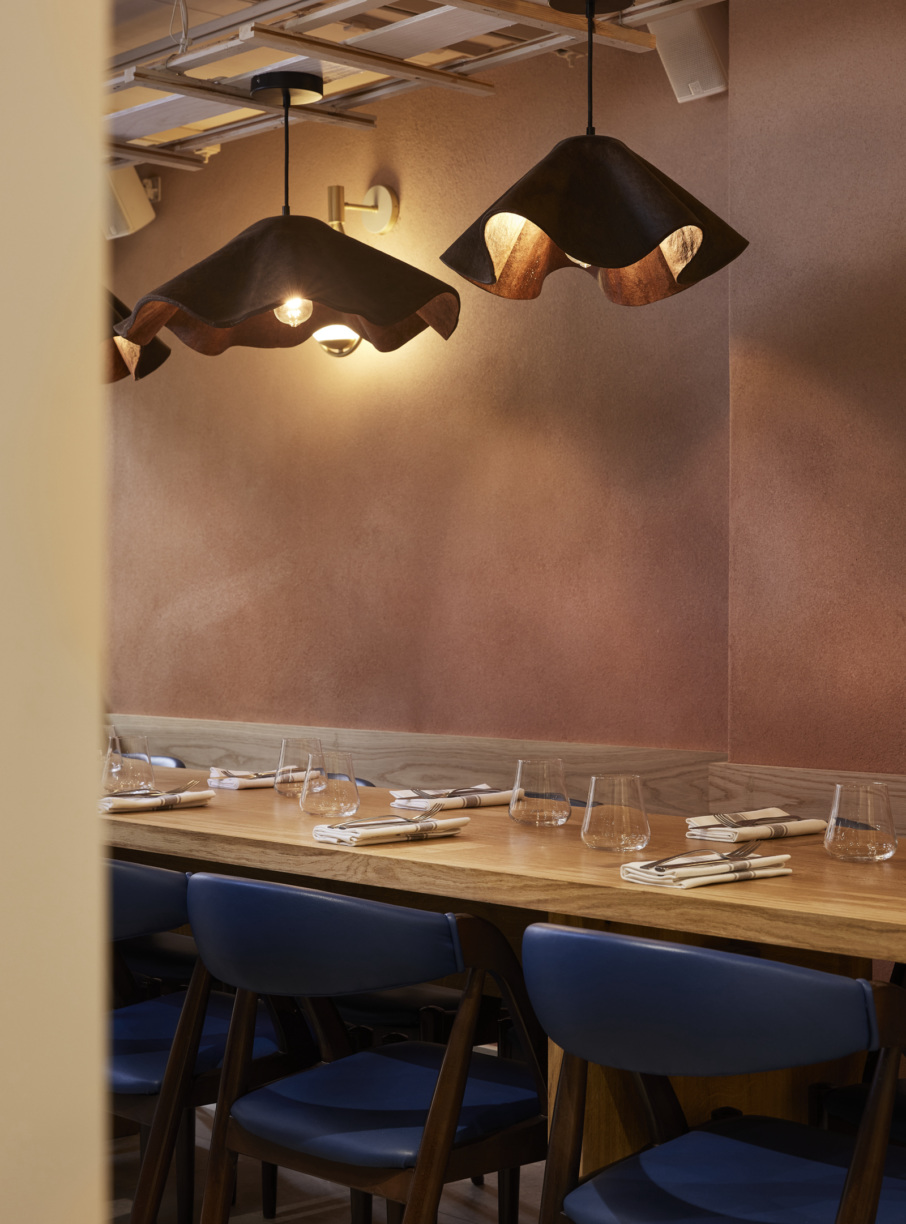
You’ll be serving British and low-intervention wines, Belu water on tap, and zero waste cocktails. Can you tell us more about them?
“The cocktails change regularly, using seasonal things from the kitchen. Again, things are kind of repurposed. We have a rhubarb pudding with cashew cream, poached rhubarb and some raw rhubarb for texture and acidity, and rhubarb granita for that change in temperature and texture. We make a syrup to cook the rhubarb in. That syrup is used in a cocktail. Another pudding uses foraged alexanders, an invasive species. We use the pickled buds in a pork dish, some of the stems in a pudding, and the syrup we use to make a fizz. The whole approach is quite 360, really.”
The restaurant design is very original. What was the thinking behind the fit out?
“The traditional model of building involves choosing five of those off the shelf, twenty of those. For me, it was trying to do it the other way round. Much of what was already in the site was reused. The skirting boards were chopped up and used to create the bar; the old staircase was chopped into little pieces and used to clad a wall, almost like Jenga – it’s quite mesmerising. When we took the plaster off the walls, we actually found they were really beautiful underneath so we just left them kind of bare and quite rustic rather than adding anything. I absolutely love them. Five years ago, I probably would have shuddered and thought we can’t just leave the ductwork exposed. It just wasn’t what you did!
“For people to rely on a guest’s judgement of how well they’ve done just doesn’t really sit right with me.”
The designer [David Chenery of Object Space Place] summed it up as being unapologetic about design factors. We don’t say ‘oh, it will do because it’s more sustainable’; it’s about looking at what is beautiful. In some ways, the restaurant is an extension of me. It’s got little quirks – I’m not apologetic about it. Some of our tables are a bit different because they’re repurposed from different restaurants. It has a personality. I didn’t want something out of a box. People love all the little stories about the fit out, peeling back all the layers. Each visit will unveil something slightly different.”
Apricity isn’t exactly your typical ‘Mayfair restaurant’. Why did you feel Mayfair was the right place for it?
“I think what we can do there is something that not many are doing. That’s probably my take on it. It’s a gateway to central London, with Selfridges round the corner, close to tube stations. The estate [Grosvenor Estate] is doing really interesting stuff in terms of their sustainability goals. It was important to find a landlord that aligned with what I was about. When this opportunity came, it made sense to do something like this in an area where it’s not that common that potentially could have a bit of a bigger reach.”
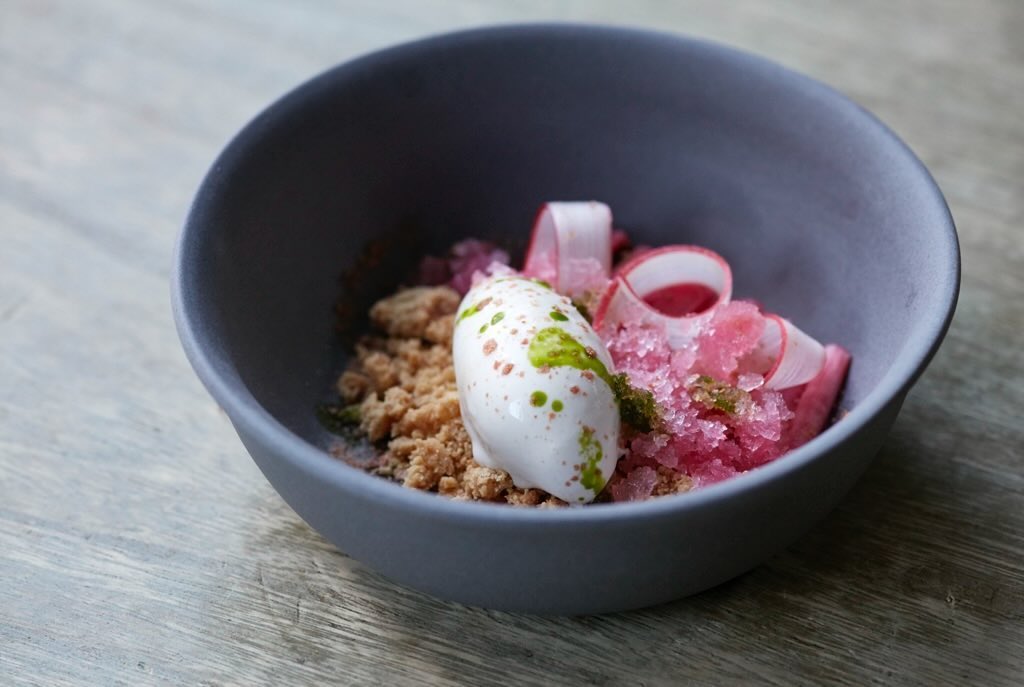
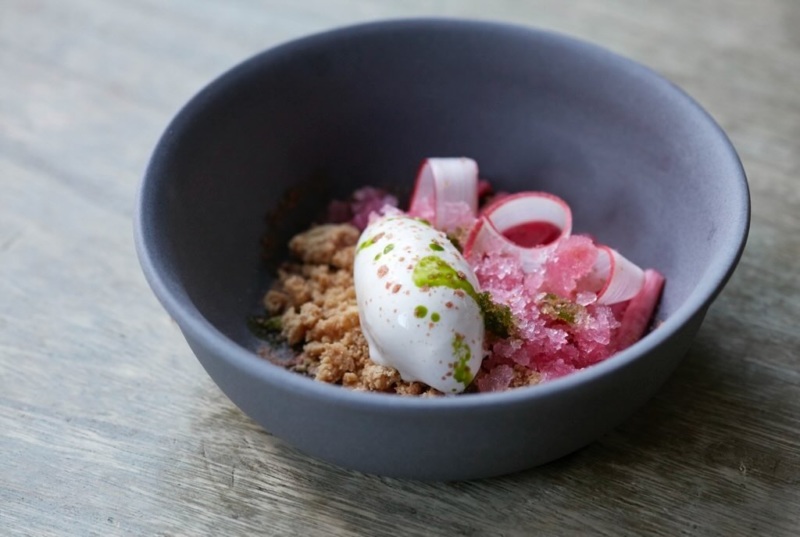
Your career trajectory has been an unconventional one, from law and banking to kitchens to operations, then back to kitchens, leaning further into sustainability along the way. How do you see it?
“I feel I’ve come a bit full circle interestingly, because I think my love for food had got me into this industry in the first place and – not realising it at the time – how lucky I was to have the upbringing I had in New Zealand surrounded by amazing produce that was part and parcel of everyday life. I didn’t really think anything of it. I kind of got annoyed with it! Getting excited by people doing great things and being able to work with them and support them, I think that’s the bit that excites me most now. Wanting to work with nice people that have a good ethos, that’s pretty much what a lot of it comes down to. Having the ability and autonomy to do that is exciting.”
Was there a turning point for you?
“Covid was a big one. I felt I came off the hamster wheel that first lockdown. Stopping wasn’t something I had ever done before. For me, it was reprioritising what was important and what my responsibilities were. It made me want to figure out the best way forward.”
What made you decide to do away with service charge?
“We removed service charge so have increased prices to reflect an all-in price, which is, I suppose, a bit of a risk to the business because it is a bit more costly in terms of VAT. But I felt that there aren’t really other industries in the world that don’t offer a reliable income stream.
For people to rely on a guest’s judgement of how well they’ve done feels, yeah, it just doesn’t really sit right with me. This feels like a new chapter that allows me to operate in a way that feels right. It’s now or never to do something that I’m comfortable with, to make sure staff get paid a really good wage and know what they’re getting each month rather than it being hit and miss.
For me, it was very important that it was a five day a week operation as opposed to a seven day a week one, just from a mental health perspective – my own! Restaurants have the ability to try and improve things and make them so people can see it as a really valid, valued, interesting, rewarding career path. There’s been a lot of things in the media that have done the opposite of that if I’m honest. If your daughter came to you and said, ‘I want to be a chef’, you’d be like ‘er, maybe let’s try something else?’”
“We’ve got people that haven’t really worked in restaurants but they are very hospitable. For me, that’s the most important thing. Coming in and feeling that warmth. I guess that’s where the name came from because I wanted that warmth of the winter sun. It’s just so delightful and so joyful. Joy is a very underrated word.”
Hilary Armstrong is a freelance food and restaurant writer based in London. Follow her on Twitter and Instagram. Follow Resy, too.

